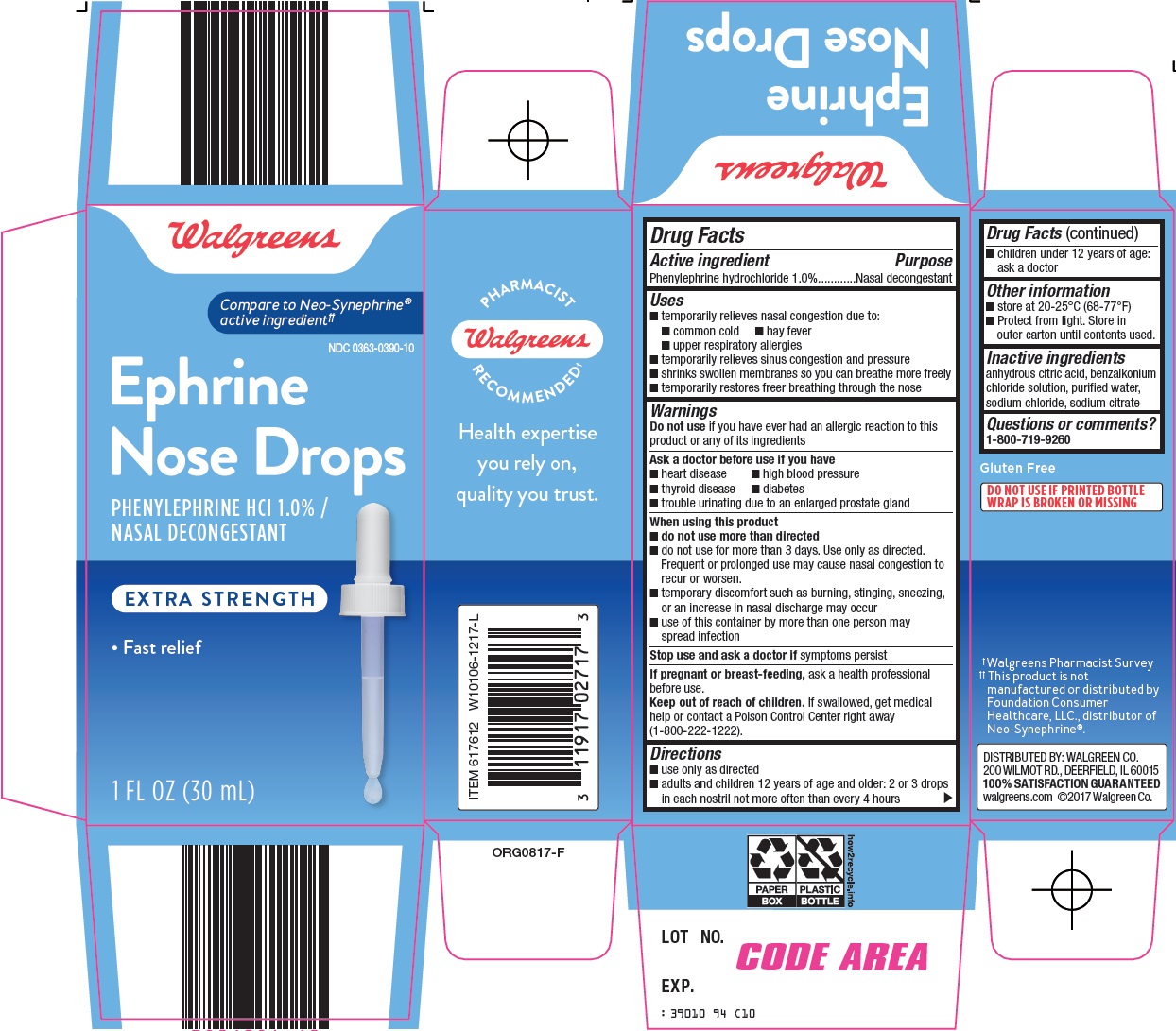Ephrine Nose Extra Strength | Phenylephrine Hydrochloride Solution/ Drops while Breastfeeding

What is Ephrine Nose Extra Strength | Phenylephrine Hydrochloride Solution/ Drops ?
Brief: Nasal decongestant
Is using Ephrine Nose Extra Strength | Phenylephrine Hydrochloride Solution/ Drops safe or dangerous while breastfeeding?

Ephrine Nose Extra Strength | Phenylephrine Hydrochloride Solution/ Drops Breastfeeding Analsys
Phenylephrine hydrochloride while Breastfeeding
Low RiskCAS Number: 59-42-7
Used on topical decongestant solutions for nose drops at low concentration. 10% midriatic eye drops are available. Because low concentration is used on nose and ophtalmic drops a significant excretion into breast milk is unlikely. Low oral biodisponibility minimizes any risk of harmful effect in the infant. Authorized for nasal or ophtalmic use on children aged younger than 1 year. Although on latest update relevant data on breastfeeding was not found it is considered to be safe when minimal dose is used. Avoid excessive or long term use. A related drug Pseudoephedrine can inhibit milk production. It would be advisable to press on the lachrimal sac to minimize absorption.
Ephrine Nose Extra Strength | Phenylephrine Hydrochloride Solution/ Drops Breastfeeding Analsys - 2
Phenylephrine hydrochloride while Breastfeeding
CAS Number: 59-42-7
The oral bioavailability of phenylephrine is only about 40%,[1] so the drug is unlikely to reach the infant in large amounts. However, intravenous or oral administration of phenylephrine might decrease milk production. Because no information is available on the use of oral phenylephrine during breastfeeding, an alternate drug may be preferred, especially while nursing a newborn or preterm infant.Phenylephrine nasal spray or ophthalmic drops are less likely to decrease lactation. To substantially diminish the effect of the drug after using eye drops, place pressure over the tear duct by the corner of the eye for 1 minute or more, then remove the excess solution with an absorbent tissue.
What if I already have used Ephrine Nose Extra Strength | Phenylephrine Hydrochloride Solution/ Drops?
Ephrine Nose Extra Strength | Phenylephrine Hydrochloride Solution/ Drops is in the category of low risk, if you have already used it then its not a big deal if health and behavior of baby is good. However your health care provider shall be aware of the fact that you have used Ephrine Nose Extra Strength | Phenylephrine Hydrochloride Solution/ Drops so you should inform him based on your convenience.
My doctor has prescribed me Ephrine Nose Extra Strength | Phenylephrine Hydrochloride Solution/ Drops, what should I do?
Though Ephrine Nose Extra Strength | Phenylephrine Hydrochloride Solution/ Drops dose not comes in category of safe drugs rather it comes in category of low risk but if your doctor is aware that you are breastfeeding your baby and has still recommended it then its advantages must be outweighing the risks.
If I am using Ephrine Nose Extra Strength | Phenylephrine Hydrochloride Solution/ Drops, will my baby need extra monitoring?
Not much monitoring required while using Ephrine Nose Extra Strength | Phenylephrine Hydrochloride Solution/ Drops
Who can I talk to if I have questions about usage of Ephrine Nose Extra Strength | Phenylephrine Hydrochloride Solution/ Drops in breastfeeding?
US
National Womens Health and Breastfeeding Helpline: 800-994-9662 (TDD 888-220-5446) 9 a.m. and 6 p.m. ET, Monday through Friday
UK
National Breastfeeding Helpline: 0300-100-0212 9.30am to 9.30pm, daily
Association of Breastfeeding Mothers: 0300-330-5453
La Leche League: 0345-120-2918
The Breastfeeding Network supporter line in Bengali and Sylheti: 0300-456-2421
National Childbirth Trust (NCT): 0300-330-0700
Australia
National Breastfeeding Helpline: 1800-686-268 24 hours a day, 7 days a week
Canada
Telehealth Ontario for breastfeeding: 1-866-797-0000 24 hours a day, 7 days a week
